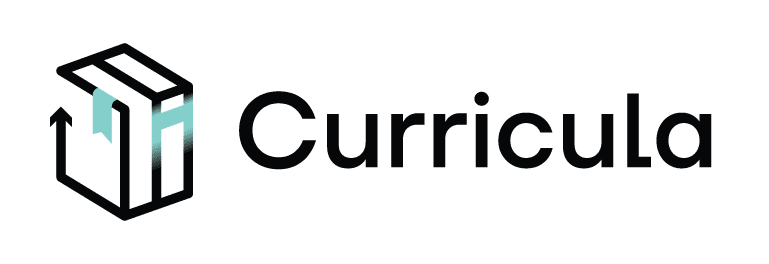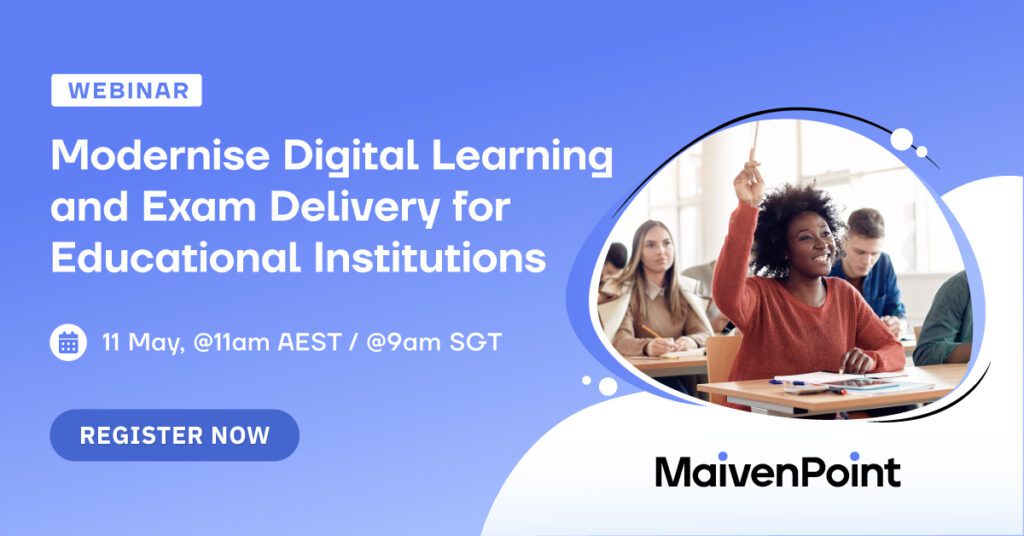The Higher Education Technology Agenda (THETA), one of Australia’s top conferences to explore and advance information technology in higher education and research, held its biennial event in Brisbane on April 16-19.
As a proud Coffee Cart sponsor at the event, MaivenPoint was thrilled to connect with thought leaders, innovators, and educators in the higher education technology communities. Throughout the four-day event, we explored interesting topics of how technology has transformed the higher education space and demonstrated how MaivenPoint could revolutionise the world of edutech, digital exams, blended learning, and so much more.
Here are some of our favourite discussions that are timely in today’s higher education technology landscape:
1. Finding the right technology to enrich the online student experience
Higher education has shifted to online and hybrid learning in the past few years, but there’s still room to grow in students’ online experience. Technology can significantly bridge some gaps.
According to McKinsey, students are most excited about learning tools when these tools make learning more entertaining and efficient. However, every student has their own definition of what entertaining and efficient is, so personalised learning is critical in ensuring success in students’ engagement and online experience.
That’s why MaivenPoint Curricula supports diverse learning methods and materials that educators can tailor to their students’ learning preferences.
Curricula enables:
- Right-sized learning: Create personalised online courses for students with bite-sized learning methods through mobile learning, question banks, and Wikis.
- Collaborative learning: Foster collaboration and communication within student communities by using engaging learning modules through video chats, social networking, games, blogs, forums, and more.
- Centralised resources: Students can access their calendars, course materials and notifications, grades, and more all in one place. Curricula can also be integrated with Teams and Zoom so students can easily connect with educators during classes.
A successful online student experience helps build effective learning models that transform students’ education. Curricula simplifies students’ learning journey and empowers engaging and interactive activities in an entirely digitised classroom – proving that the partnership between education and technology can lead to a fun learning experience for educators and students alike.

2. Maintaining security and integrity in online examinations
Fully embracing digital learning models isn’t as easy as it seems, especially with digital tests. Various products offer improved online exam crafting, but maintaining security and student integrity during exams remains challenging for most institutions.
To improve security in conducting remote exams, there is now an increasing demand for tools that allow granular permission controls for exam stakeholders to ensure the right people have the right access to perform their tasks.MaivenPoint Examena leverages AI to empower advanced security for online exams, whether it’s a quiz or high-stakes exams. With granular permissions settings, learning institutions or organisations with multiple departments or teams can now customise specific roles for authors, graders, supervisors, and administrators.
The same platform can flexibly ensure the integrity of the exams and allowing proctors and invigilators easily monitor any anomaly or suspicious behaviours while conducting the exam.
Employ security protocols for your online assessments with Examena’s anti-cheat capabilities:
- Multi-factor authentication: Prevent unauthorised access to exam questionnaires; and to ensure the right candidate is taking the right exam.
- Screen only or 360° workspace view: Ensure the candidate takes exams alone and without any prohibited materials in the room.
- Facial recognition, audio sensing, screen monitoring, and eyeball movement tracking: Accurately check attendance, validate candidates’ identity, and enforce strict exam security with alerts on detected suspicious behaviours such as change in candidate, multiple people or conversations detected etc. Enable exam recordings so other invigilators can review the exam.
- Whitelisting and blacklisting webpages and applications: Control authorised applications that users can access during the exam period.
These advanced security and anti-cheat features, alongside Examena’s collaborative exam delivery capabilities, help educational institutions modernise online assessments confidently for its community of users.

3. How ChatGPT can change the future landscape of education and assessments
ChatGPT is taking the world by storm, and educational institutions are debating how beneficial or disruptive generative AI tools can be for student learning. Many educators are concerned with learners using AI to quickly obtain (unverified) information or generate content they submit as their own.
However, many education innovators believe there’s more to AI than just a tool for research or writing. With the right approach and mindset, ChatGPT and other generative AI tools can empower students in their learning. MaivenPoint, for example, leverages AI to enforce Examena’s anti-cheating and other capabilities to evolve how technology meets today’s educational needs.
Here are some examples of what ChatGPT and other AI tools can empower:
- Knowledge gain: Consider ChatGPT an advanced search engine or textbook where students can easily access the information they need to dive deeper into subject matters, providing them with more holistic knowledge.
- Critical thinking: ChatGPT can serve as an assistive tool for educators in building diverse lessons and topics for students to dissect. Then, educators can prompt students to widen their perspectives and encourage critical thinking by validating the knowledge gained from the tool and helping students interpret the presented information.
Other use cases prove that with proper guidance and control, ChatGPT and other AI tools can positively affect how students learn in today’s modern educational environment. For example, educators can use ChatGPT to refine testimonials written for students in the context of their individual learning development. Students can also use the AI tool to refine their resumes or CVs to ensure keywords and skillsets are included to improve chances of being shortlisted for job roles.
ChatGPT can also introduce modern standards for assessments. Take-home essays remain one of the important aspects of assessment, and with the new developments in AI-generated content and AI-powered grading, there is now a need for educators to build assessment questionnaires that require deeper analysis and original thought. This compels students to keep up and advance their learning with modern solutions like AI while enhancing critical thinking.
Continue the dialogue with MaivenPoint
At MaivenPoint, we remain open to transformative possibilities and shape our technologies to help educators fully embrace the digital tools they need to advance in the higher education space. Our products offer a comprehensive baseline for efficient and effective learning, assessment and student administration operations, while offering the versatility and scalability that institutions need to address dynamic and modern learning needs.
As we look forward to continuing the dialogue and collaborating with the higher education community, join us as we dive deeper into modernising today’s digital learning and online assessments in our upcoming webinar on May 11, 2023.




